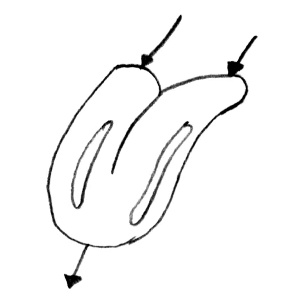Satisfaction

It's nice to strive for something, to have a goal, some place you want to get to or some thing you want to do. But what happens when you get there? At first, perhaps, you feel satisfied with yourself, but before too long there's a new thing on the horizon, and you find another goal to strive for.
Perhaps the answer is to stop striving, to learn to accept things as they are. What if you could stop having goals and just be? There are definitely belief systems that advocate this, and there's something to be said for it. If you need to achieve something to feel satisfied, and when you achieve something you need to achieve something else, then, by induction, you will always feel unsatisfied. If you can stop the need, then you can break that cycle.
But something about that solution seems incomplete to me. This process of finding and fixing a problem is satisfying, much as it would be nice to pretend it isn't. It feels good to see something not as it should be and set it right, up to and including putting yourself in a situation where something's not right just so you can fix it. And what is a goal but something that you decide it would be right to complete?
My belief is that the danger isn't striving or looking for problems, but your attitude towards those problems. If you are unhappy until your problems are solved, of course you will be unhappy forever. The trick isn't to no longer have problems, the trick is to be happy with having problems, happy with being a work-in-progress, and happy that you haven't achieved all of your goals. In other words, to enjoy the process of satisfaction rather than the state of being satisfied.
I would even go so far as to say that we need problems. A surprising corollary of the idea that solving a problem is satisfying is that, if we ran out of problems, we could never be satisfied. If that good feeling we get from putting something right is important to us, it would be a very scary state of affairs to discover that there's nothing left to fix.